Global Virtual Summit on Digital Identity for Refugees
Envisioning a digital identity ecosystem in support of the Global Compact on Refugees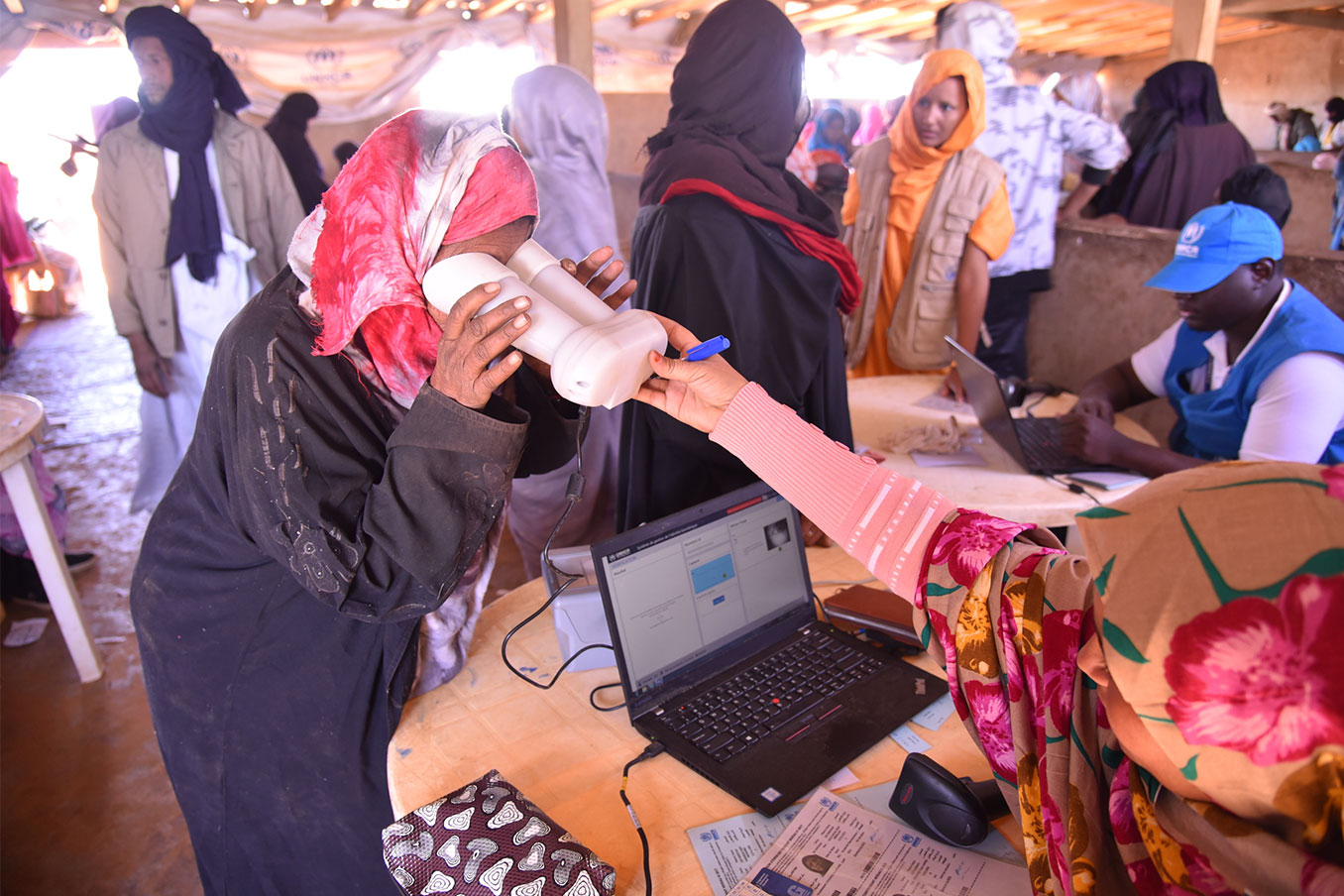
Global Virtual Summit on Digital Identity for Refugees
Envisioning a digital identity ecosystem in support of the Global Compact on Refugees
The Global Virtual Summit is an initiative run by UNHCR, the UN Refugee Agency, in partnership with Immigration, Refugees and Citizenship Canada (IRCC) on how digital identity can provide greater opportunities for refugees and asylum-seekers, allowing them to contribute more to their host communities.
Through this Summit, UNHCR and IRCC are seeking to catalyse dialogue with a broad group of stakeholders to envision what a “good” digital identity for refugees should look like, as well as to make recommendations that will contribute to realising the goals of the Global Compact on Refugees.
The Summit launched in March 2019 with a call for written submissions. Close to 90 submissions were received from refugees, researchers, technologists, civil society, innovators, entrepreneurs, the private sector and humanitarian and development actors, contributing their experiences, perspectives and expertise on this fast-developing area.
The authors of the shortlisted papers were invited to present during three thematic virtual events that took place in the last weeks of May 2019. The Summit concluded on 12-13 June with a workshop in Ottawa, Canada where participants worked together to come up with recommendations and conclusions on how digital identity for refugees can help to realise the goals of the Global Compact on Refugees. The full agenda and the recordings of the virtual thematic sessions can be viewed here.
UNHCR and IRCC are presenting the conclusions and recommendations at the Global Refugee Forum taking place in Geneva 17 – 18 December and how these recommendations are now guiding UNHCR’s work on digital identity and inclusion under its new Data Transformation Strategy 2020-2025.
The conclusions and recommendations can be viewed here.
Download a copy of the Brochure shared at the Global Refugee Forum here.
Key Dates
- 22 April: Deadline for submitting your written contribution
- 21 May: First Virtual event – The Global Compact on Refugees and the refugee identity ecosystem in the digital age: Current context and emerging themes
- 24 May: Second Virtual Event – Refugee identity: Privacy, confidentiality, data protection and security
- 29 May: Third Virtual Event – Emerging technologies and new developments in the refugee identity ecosystem
- 12-13 June: Concluding workshop in Ottawa, Canada
- 17- 18 December: Presentation of the findings at the Global Refugee Forum in Geneva, Switzerland
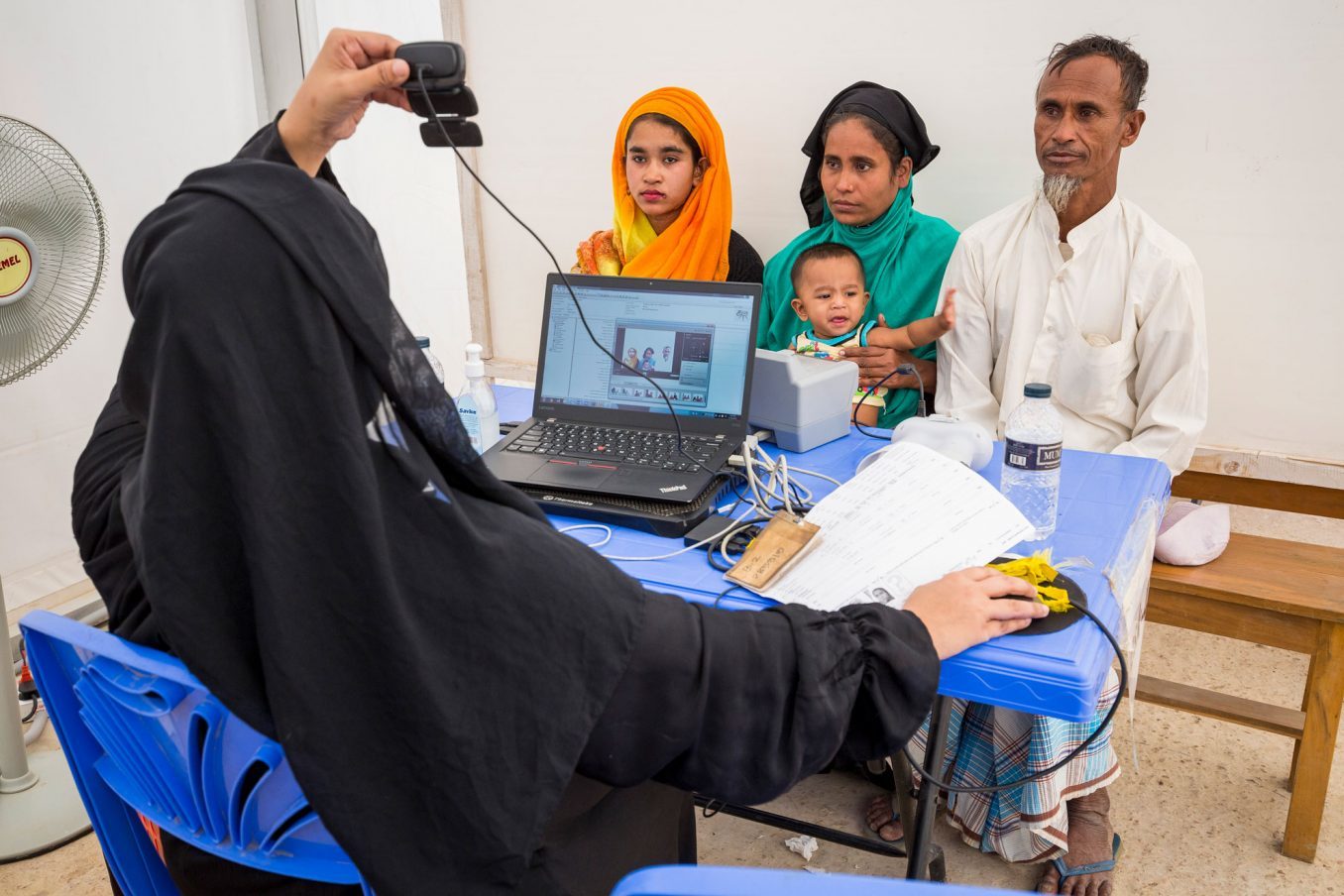
About
The goal of the summit is to come up with innovative and practical recommendations on digital identity that will help refugees access greater opportunities and contribute more to their host communities. Recommendations should focus on the following topics: refugee registration and identity management (including biometrics), data protection and privacy, the inclusion of refugees in States’ systems, livelihood opportunities that can be created by closing the technology gap, resettlement and other solutions.
Background
Over 25 million people have been forced to cross borders to escape war, persecution or violence. 85% are hosted in low- and middle-income countries where services and infrastructure are already strained. As part of a stronger response plan, on 17 December 2018, in a historic decision, the UN General Assembly agreed on a new deal for refugees, known as the Global Compact on Refugees. It aims to strengthen the international response to large movements of refugees and protracted refugee situations. Its four key objectives are to:
- Ease the pressures on host countries;
- Enhance refugee self-reliance;
- Expand access to third-country solutions;
- Support conditions in countries of origin for return in safety and dignity.
We believe that digital identity can be one of the new pathways by which refugees can access greater opportunities and contribute more to their host communities. Digital Identity can for example, allow the forcibly displaced to prove their identity to register SIM cards in their own names, access financial services (such as opening a mobile money account), to undertake university courses online which might otherwise be inaccessible and to be awarded with recognised qualifications in their own name.
At the same time, in many countries, the ongoing digitalisation of States’ civil registration and vital statistics systems and the establishment of integrated population registries, as well as the increasing use of digital platforms by the private sector and humanitarian agencies to facilitate access to services, makes it essential that refugees have a widely recognised digital identity that facilitates their digital inclusion. Increased civil registration coverage can contribute to the prevention of statelessness and facilitate durable solutions for refugees.
A digital identity must protect as well as empower.
Refugee protection is at the heart of UNHCR’s work and is just as necessary in the digital sphere as in the physical world. Over 7 million of the World’s 25.4 million refugees are registered in UNHCR’s digital Population Registration and Identity Management Ecosystem (“PRIMES“). UNHCR’s registration work attempts to fill the gap when host States are unable or unwilling to undertake the crucial task of refugee registration in emergencies. Recognising the weight and importance of this responsibility, UNHCR was the first UN Agency to adopt a data protection policy covering the personal data we control and process, and when it can be shared.
A “good” digital identity must guarantee refugees’ privacy and and the protection of their personal data throughout the identity life-cycle.
The Global Compact acknowledges the importance of registration, identity management (including biometrics), privacy and data protection, and of inclusion of births of refugee children in host States civil registry systems to ensure refugees have greater access to opportunities and can contribute more to their host communities. It is in this evolving context that we believe it is a key moment to consider the contours of a “good” global digital identity ecosystem to help achieve these aims. And we’re asking for you to help us.
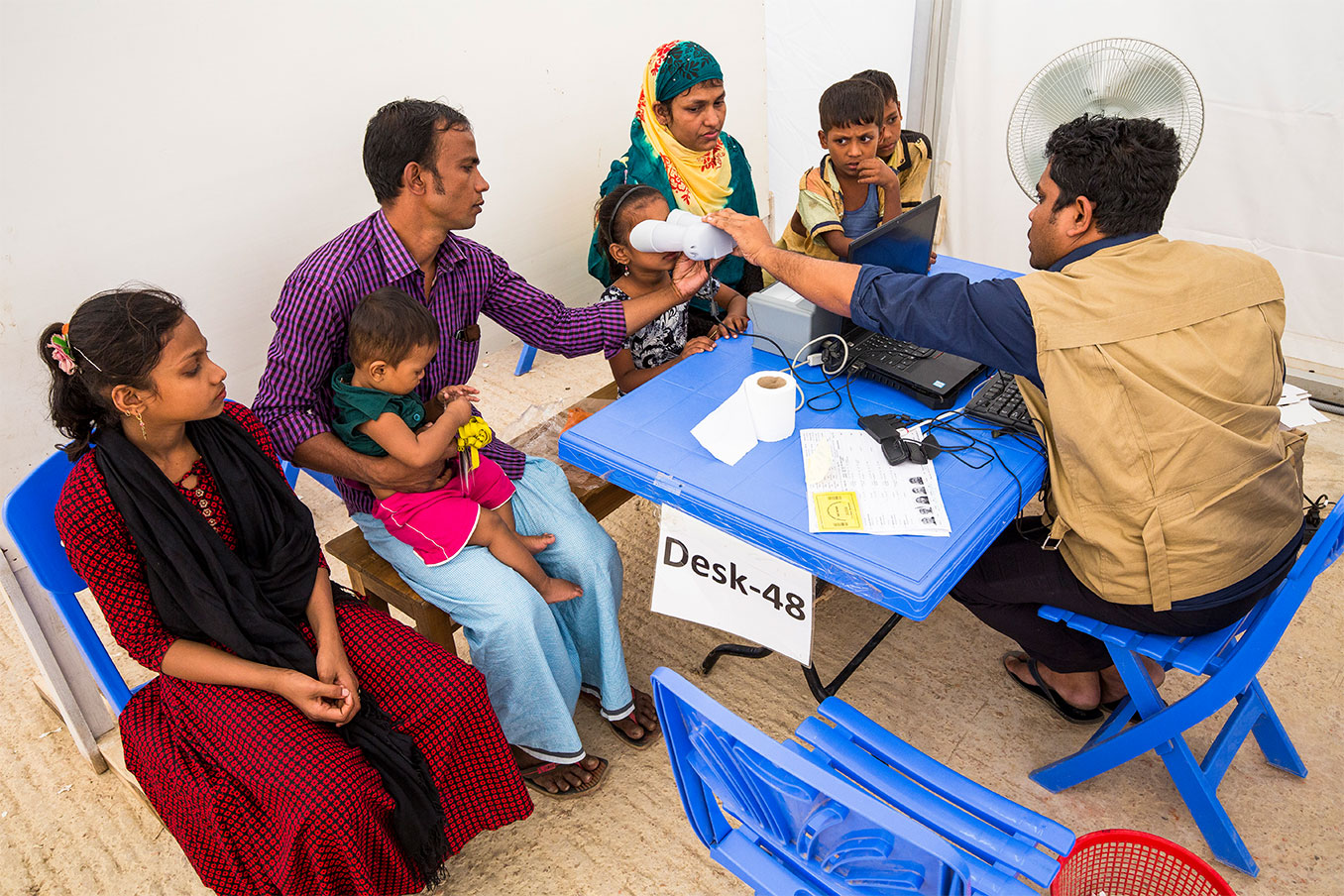
Submissions
We kicked off the summit with a call for short written submissions. Participants were invited to make written contributions of a maximum 1500 words on key themes identified before 22 April 2019.
The aim of the submissions process was to engage a wide-ranging group of individuals (asylum seekers and refugees, host communities, researchers, technologists, civil society, innovators, entrepreneurs, the private sector, humanitarian and development actors) to contribute their experiences, perspectives and expertise on this fast-developing area and help us shape the contours of a “good” refugee identity ecosystem.
The organisers were extremely impressed with the high-quality papers received and would like to thank everyone who took their time to submit a paper. The authors of the shortlisted papers were invited to make presentations during the Summit’s thematic virtual events. You can watch the recording of their presentations here.
Please see the list of shortlisted submissions below:
- A Feminist Analysis of Refugee Empowerment through Smartphone Technologies, Randa Salamoun, Charlotte M. Karam & Crystel Abdallah, Olayan School of Business, American University of Beirut. This work is currently in progress and the authors have asked not to publish the paper at this stage. You can find out more by viewing the recording from the presentation during Virtual Event 2.
- Benefits and Risks of Blockchain-based Solutions, Othalia Doe-Bruce, InnovFin Consulting Inc.
- Design Considerations of a Digital Identity Systems for Refugees, Sanjay Sarma and Philipp Schmidt, Massachusetts Institute of Technology (MIT)
- Digital Identity: The Perspective from Kakuma Refugee Camp, Zakaria Mohamed Odawa, Refugee Youth Speaker from Kakuma Camp, Kenya
- E-Maharat- a borderless market for skilled refugees, Maria Argyrou, Natasha Bhuta, Sabaa Notta, Marc Tannous, Columbia School of International and Public Affairs (SIPA). This work is currently in progress and the authors have asked not to publish the paper at this stage. You can find out more by viewing the recording from the presentation during Virtual Event 3.
- Emerging technologies and new developments, Accenture (TBD)
- Good ID in design and practice, Thea Anderson, Director, Omidyar Network
- How Digital Identity Can Help End the Financial Exclusion of Refugees, Lev Plaves and Matthew Davie, Kiva
- Improving Livelihoods Through the Power of Mobile: the case for addressing identity barriers faced by forcibly displaced persons, Yiannis Theodorou, Director of Policy & Advocacy, Mobile for Humanitarian Innovation, GSMA
- Inclusive design solutions for interoperable, standards based digital ID systems, MOSIP
- Identity at the margins: Identification systems for refugees, Emrys Schoemaker, Paul Currion, and Bryan Pon, Caribou Digital
- Identifying and Clarifying Principles regarding Privacy, Confidentiality, Data Protection and Security, Professors Elspeth Guild, Queen Mary University of London, Didier Bigo, Sciences-Po Paris, Marie-Laure Basilien-Gainche, University Jean Moulin Lyon III, and Elif Mendos Kuşkonmaz, University of Portsmouth
- Key considerations to keep in mind when designing identification systems, Privacy International
- Rights, Literacy, Control & Choice: How do we avoid growing inequalities? Amos Doornbos, World Vision International
- Screening Technology Against Harms to Displaced Persons and Society at Large, Bushra Ebadi & Jonathan Kent, Centre for International Governance Innovation (CIGI)
- Technical and Social Concerns to Keep in Mind when Going Down the Digital Identity Route, Caroline Compton, Fleur Johns, Lyria Bennett Moses, Monika Zalnieriute, Guy Goodwin-Gill, Jane McAdam, UNSW Law
- Universal Recommendations for Implementation of Digital Identity Solutions for Refugee Populations, Balázs Némethi and Vilas Dhar, Taqanu. Please note that is a working draft. The document may be updated.
- When Identification Becomes a Barrier, UNHCR Innovation Service
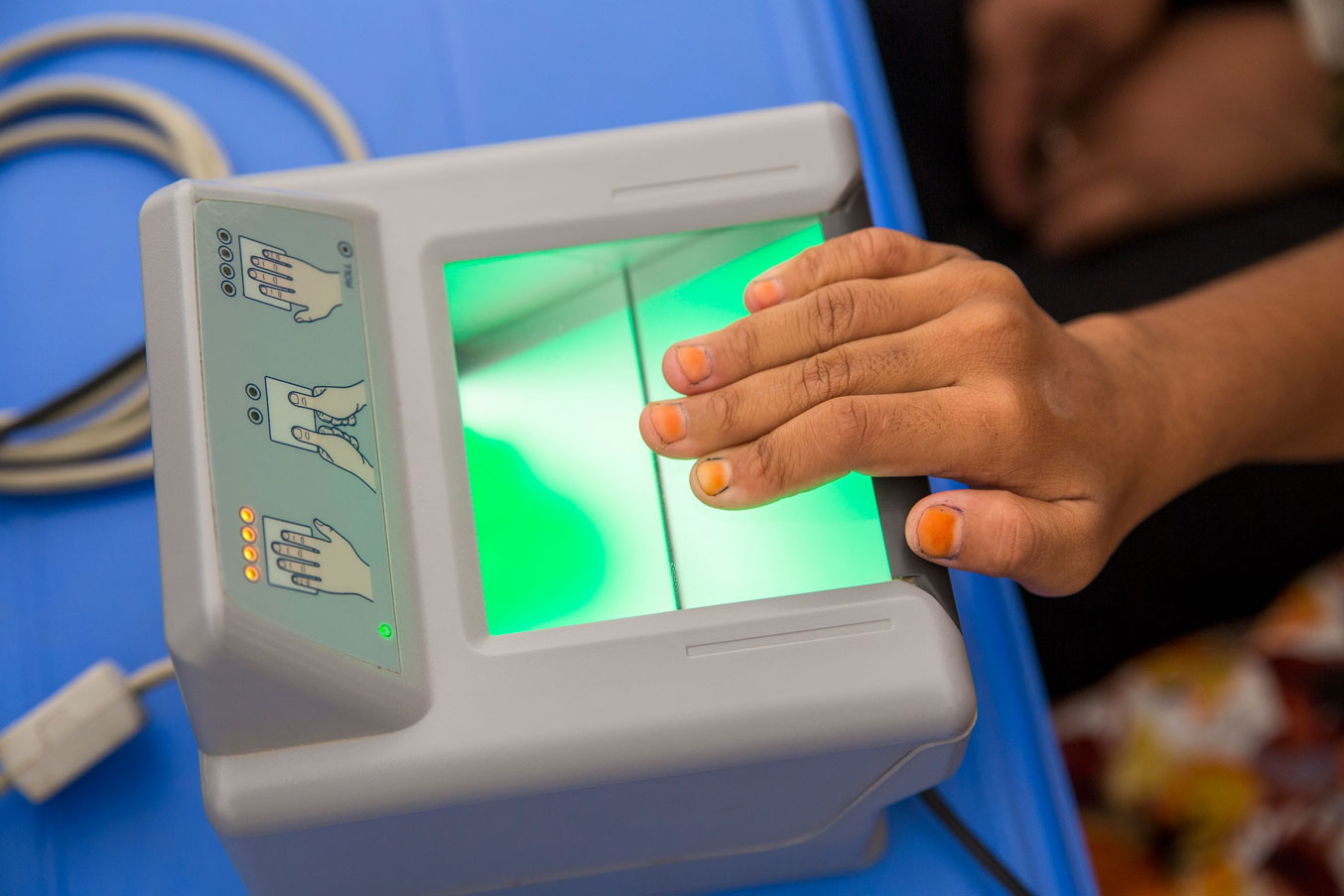
The Virtual Events
The virtual events took place in the two last weeks of May 2019. Below you will be able to see the full agenda as well as links to view the recordings of each of the sessions.
Virtual Event 1: The Global Compact for Refugees and the Refugee Digital Identity Ecosystem
When: Tuesday 21st May 2019 Time: 4:00 p.m. – 5:30 p.m. CEST
Agenda
Setting the Context
- The Current Context: Registration and Identity Management at UNHCR, Amalina Majid, Registration Officer, UNHCR
- Biometrics and Interoperability: The Continued Journey of Identity, Sam Jefferies, Identity Management Officer (Biometrics), UNHCR
Key Perspectives
- Digital Identity: The Perspective from Kakuma Refugee Camp, Zakaria Mohamed Odawa, Refugee Youth Speaker from Kakuma Camp, Kenya
- Technical and Social Concerns to Keep in Mind when Going Down the Digital Identity Route, Professor Lyria Bennett Moses, Director of the Allens Hub for Technology, Law and Innovation and Professor in the Faculty of Law at UNSW Sydney
Digital identity, mobile and livelihoods
- Improving Livelihoods Through the Power of Mobile: the case for addressing identity barriers faced by forcibly displaced persons, Yiannis Theodorou, Director of Policy & Advocacy, Mobile for Humanitarian Innovation, GSMA
- When Identification Becomes a Barrier, Aaron K. Martin, Postdoctoral Research Fellow, Tilburg University Law School
- How Digital Identity Can Help End the Financial Exclusion of Refugees, Lev Plaves, Managing Director, Kiva’s World Refugee Fund
Virtual Event 2: Good digital identity for refugees, the “end user” and privacy
When: Friday 24th May 2019
Time: 4:00 p.m. – 5:30 p.m. CEST
Agenda
Defining Good Digital Identity
- Good ID in design and practice, Thea Anderson, Director, Omidyar Network
The “End-User” Perspective
- Identity at the margins: Identification systems for refugees, Bryan Pon, Analyst, Caribou Digital
- A Feminist Analysis of Refugee Empowerment through Smartphone Technologies, Randa Salamoun, Charlotte M. Karam & Crystel Abdallah, Olayan School of Business, American University of Beirut
- Rights, Literacy, Control & Choice: How do we avoid growing inequalities? Amos Doornbos, Disaster Management Strategy & Systems Director, World Vision International
Privacy and Data Protection
- Introduction on Privacy and Data Protection at UNHCR, Alexander Beck, Senior Data Protection Officer, UNHCR
- Identifying and Clarifying Principles regarding Privacy, Confidentiality, Data Protection and Security, Elif Mendos Kuşkonmaz, Lecturer, University of Portsmouth
- Key considerations to keep in mind when design of identification systems, Alexandrine Pirlot de Corbion, Lead – Global Programme, Privacy International
Solutions
- Screening Technology Against Harms to Displaced Persons and Society at Large, Bushra Ebadi & Jonathan Kent, Centre for International Governance Innovation (CIGI)
Virtual Event 3: Emerging technologies and new developments
When: Wednesday 29th May 2019
Time: 4:00 p.m. – 5:30 p.m. CEST
Agenda
Introduction
- Framing the Discussion, Dimitris Thanos, Senior ICT Officer, UNHCR
Ecosystem Vision/ Principles for System Design
- Design Considerations of a Digital Identity Systems for Refugees, Jeff Dieffenbach, Associate Director, MIT Integrated Learning Initiative
- Universal Recommendations for Implementation of Digital Identity Solutions for Refugee Populations, Balázs Némethi, CEO and Founder, Taqanu
The Open-Source Model
- Inclusive design solutions for interoperable, standards based digital ID systems, Arun Gurumurthy, MOSIP, IIT University, Bengaluru
The Future of Biometrics
- Biometrics: The Next Phase, Thomas Moretti, Digital Identity Innovation, Accenture Security
Blockchain
- Benefits and Risks of Blockchain-based Solutions, Othalia Doe-Bruce, Managing Director at InnovFin Consulting Inc.
New Solutions
- E-Maharat- a borderless market for skilled refugees, Maria Argyrou, Natasha Bhuta, Sabaa Notta, Marc Tannous, Columbia School of International and Public Affairs (SIPA)
The summit will close with a final in-person conference in Canada on the 12 and 13 of June 2019 to explore a number of key issues in greater depth with the aim of formulating recommendations. The recommendations will then be compiled into a final document that aims to outline the contours of a good digital identity ecosystem for refugees and help achieve the aims of the Global Compact for Refugees.
For more information please contact [email protected]
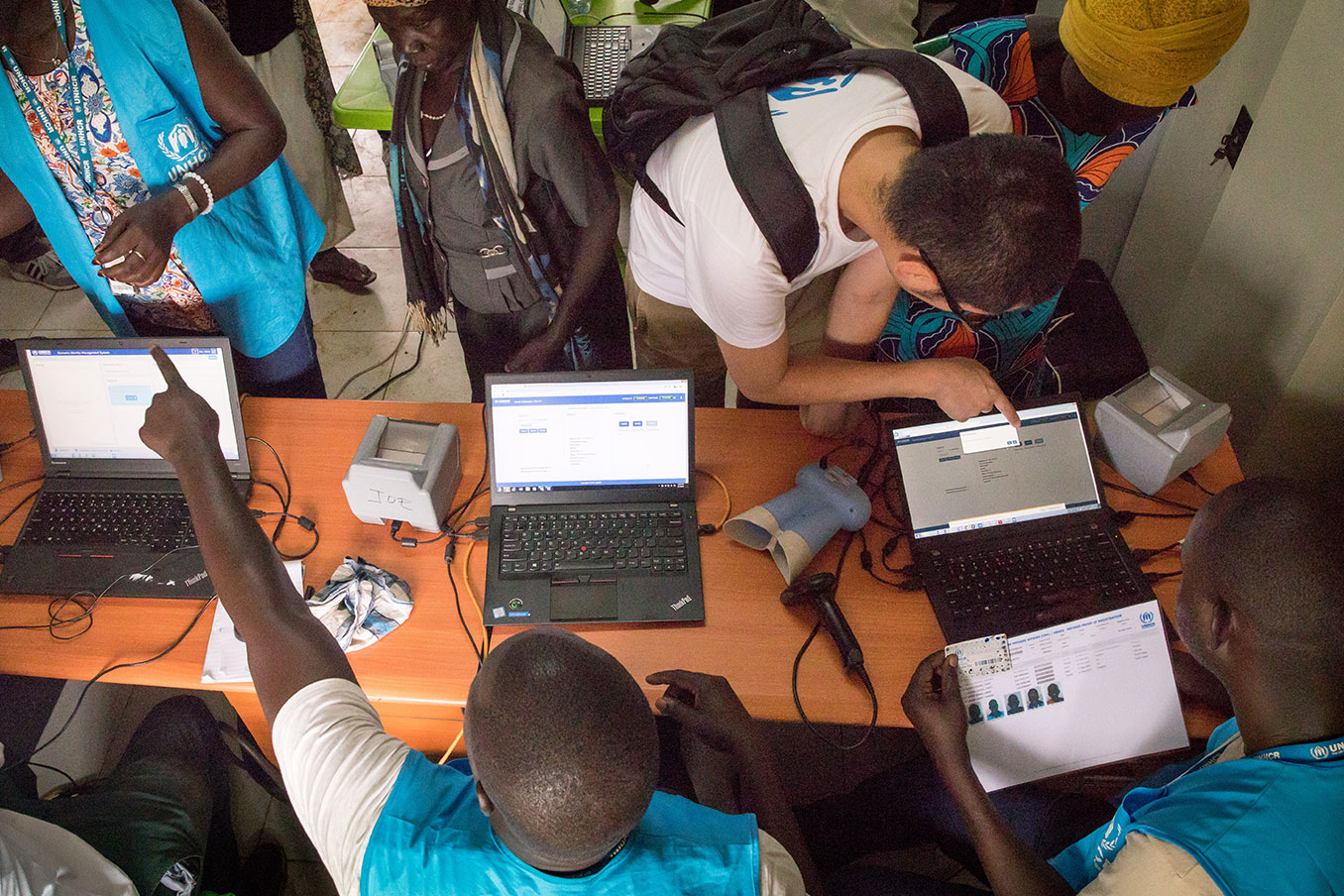
Conclusions and Recommendations
All the materials and contributions gathered throughout the different stages of the Summit have been compiled into a series of conclusions and recommendations on how digital identity can help enable the implementation of the Global Compact on Refugees. The full Conclusions and Recommendations document can be viewed here.
In short, as digitalization increases in all sectors of life, refugees will increasingly require a digital identity if the GCR’s goals are to be realized across the full spectrum of displacement, be that for basic assistance and protection, or to provide access to essential services and greater long-term economic inclusion, to contributing to durable solutions to displacement.
However, the risks to refugee protection that can arise from digital identity systems such as tracking, monitoring or surveillance need to be taken into account. Alternative models must also be considered to ensure that refugees’ identity can still be authenticated and verified to avoid risks of exclusion and limitations on access to services.
- The unique considerations that apply to refugees and identity should be reflected in legal and regulatory standards that are being developed on digital identity, including trust frameworks by, for example, international and regional organisations, States and financial and telecommunications regulators.
- UNHCR should consider establishing principles, standards and practical guidance in respect of digital identity and refugees that could provide guidance to key Stakeholders including States, humanitarian organisations and the private sector. In particular should consider developing specific guidance on how data protection and privacy principles should be realized by stakeholders which process refugees’ personal data, building on the foundation of the Policy on the Protection of the Personal Data of Persons of Concern to UNHCR and other international standards including international human rights law.
- As States increasingly develop digital identity ecosystems, UNHCR should consider how PRIMES should be developed to work as part of the Host State’s digital ecosystem, for example, by interoperability with host States’ digital identity systems, where there is an appropriate enabling environment.
- UNHCR should consider how its systems, policies and practice and technical support provided to host States could be aligned with international digital identity standards to facilitate greater recognition of refugees’ identity to enable the realisation of the GCR’s objectives. For example, the Agency could consider how PRIMES’s capacity for identity authentication could be strengthened, alongside other integral elements of the digital identity lifecycle.
- UNHCR should consider supporting the establishment of a multi-stakeholder technology ethics board that could screen technologies to give guidance on the use of particular emerging technologies for refugees using the experience of the technology sector, such as large app platform providers.
- The further design and development of the humanitarian ecosystem need to have a “people-centred approach” and be developed in consultation with the refugees whose lives they will impact. The design and development will need to properly include and accommodate the full range of age, gender, disability, and diversity.
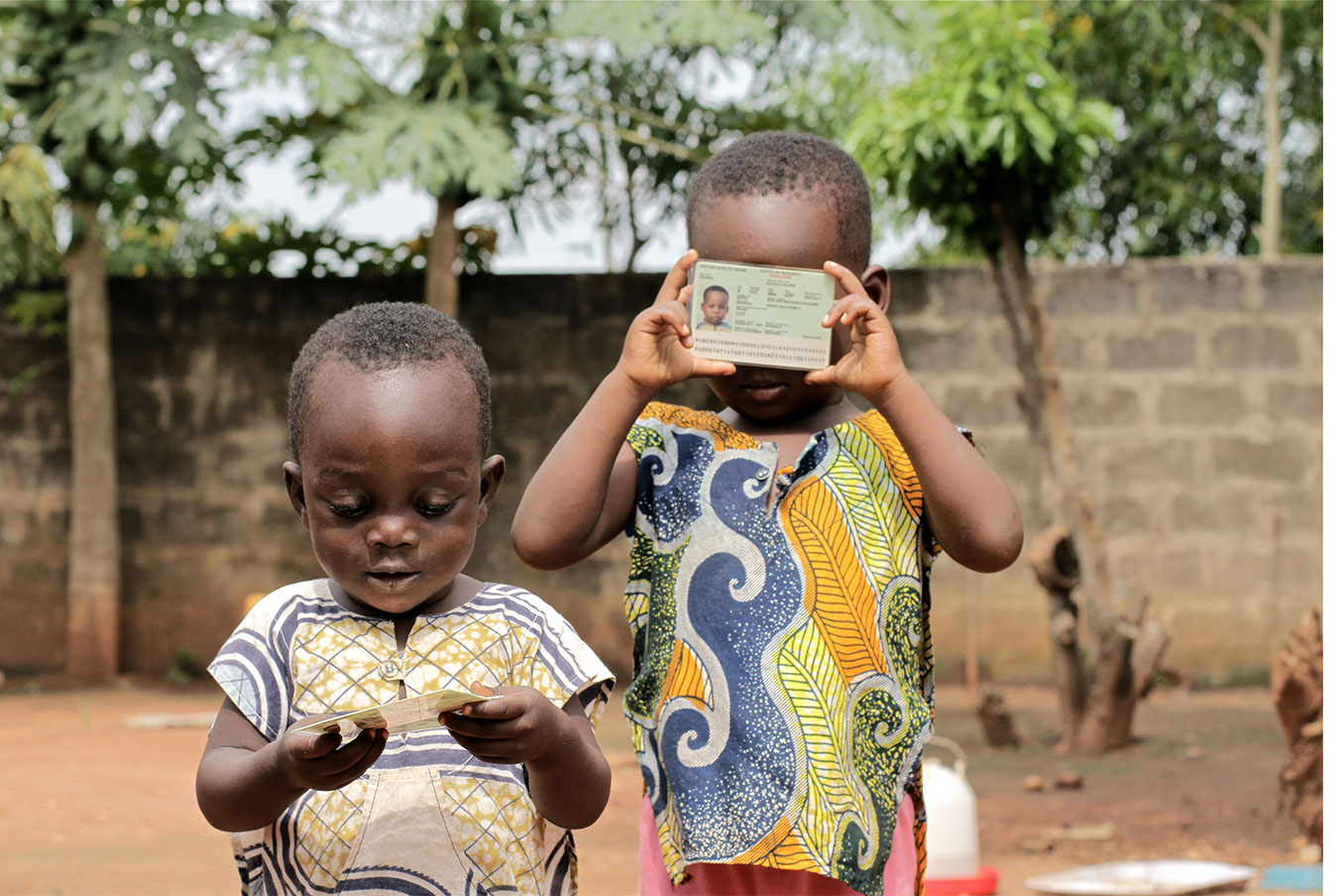
Resources
Below, you will find some useful resources to delve deeper into the world of UNHCR’s work relating to refugee protection, identity management, digital identity, data protection (etc.) but also other resources on digital identity and inclusion (etc.).
UNHCR resources
The Global Compact on Refugees
- The Global Compact on Refugees
- Volker Türk, The Promise and Potential of the Global Compact on Refugees (2019)
Registration, Identity Management & Digital Inclusion
- UNHCR Blog on Digital Inclusion
- UNHCR Registration webpage
- UNHCR’s Guidance on Registration and Identity Management
Data Protection & Privacy
- Policy on the Protection of Personal Data of Persons of Concern to UNHCR
- Guidance on the Protection of Personal Data of Persons of Concern to UNHCR
Other
Other resources
Reports
- Caribou Digital, Identity at the Margins: refugee identity and data management (2018)
- Coppi, Giulio & Fast, Larissa (HPG Commissioned report). Blockchain and Distributed Ledger Technologies in the Humanitarian Sector (2019)
- GSMA, Refugees and Identity: Considerations for mobile-enabled registration and aid delivery (2017)
- GSMA, Landscaping the Digital Humanitarian Ecosystem (2018)
- Manby, Nonie Bronwen. Identification in the context of forced displacement : identification for development (ID4D) (2018)
- Mittal, Anita (World Bank Group). Catalog of Technical Standards for Digital Identification Systems (2018)
- Natarajan, Harish; Appaya, Mandepanda Sharmista; Balasubramanian, Sriram (World Bank Group). G20 Digital Identity Onboarding (2018)
- World Bank. Principles on identification for sustainable development : toward the digital age (2018)
Other

